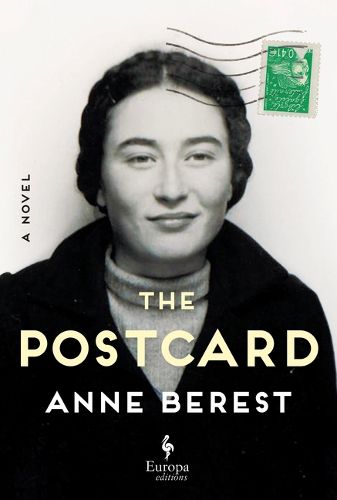Readings Newsletter
Become a Readings Member to make your shopping experience even easier.
Sign in or sign up for free!
You’re not far away from qualifying for FREE standard shipping within Australia
You’ve qualified for FREE standard shipping within Australia
The cart is loading…






A BEST BOOK OF 2023 TIME Magazine?NPR?Library Journal?The Globe and Mail?Lilith?Forward Magazine?Toronto Star?The New Yorker
"A testament to the power of imagination and an investigation of empathy."--Vogue
"Stunning."--Leslie Camhi, The New Yorker
"A can't-miss novel."--Chicago Review of Books
"Compelling."--The Washington Examiner
Anne Berest's The Postcard is among the most acclaimed and beloved French novels of recent years. It is at once a gripping investigation into family trauma, a poignant tale of mothers and daughters, and a vivid portrait of twentieth-century Parisian intellectual and artistic life.
January, 2003. Together with the usual holiday cards, an anonymous postcard is delivered to the Berest family home. On the front, a photo of the Opera Garnier in Paris. On the back, the names of Anne Berest's maternal great-grandparents, Ephraim and Emma, and their children, Noemie and Jacques--all killed at Auschwitz.
Years after the postcard is delivered, the heroine of this novel is moved to discover who sent it and why. What emerges is a moving saga of a family devastated by the travails of the twentieth century and partly restored through the power of storytelling.
$9.00 standard shipping within Australia
FREE standard shipping within Australia for orders over $100.00
Express & International shipping calculated at checkout
A BEST BOOK OF 2023 TIME Magazine?NPR?Library Journal?The Globe and Mail?Lilith?Forward Magazine?Toronto Star?The New Yorker
"A testament to the power of imagination and an investigation of empathy."--Vogue
"Stunning."--Leslie Camhi, The New Yorker
"A can't-miss novel."--Chicago Review of Books
"Compelling."--The Washington Examiner
Anne Berest's The Postcard is among the most acclaimed and beloved French novels of recent years. It is at once a gripping investigation into family trauma, a poignant tale of mothers and daughters, and a vivid portrait of twentieth-century Parisian intellectual and artistic life.
January, 2003. Together with the usual holiday cards, an anonymous postcard is delivered to the Berest family home. On the front, a photo of the Opera Garnier in Paris. On the back, the names of Anne Berest's maternal great-grandparents, Ephraim and Emma, and their children, Noemie and Jacques--all killed at Auschwitz.
Years after the postcard is delivered, the heroine of this novel is moved to discover who sent it and why. What emerges is a moving saga of a family devastated by the travails of the twentieth century and partly restored through the power of storytelling.